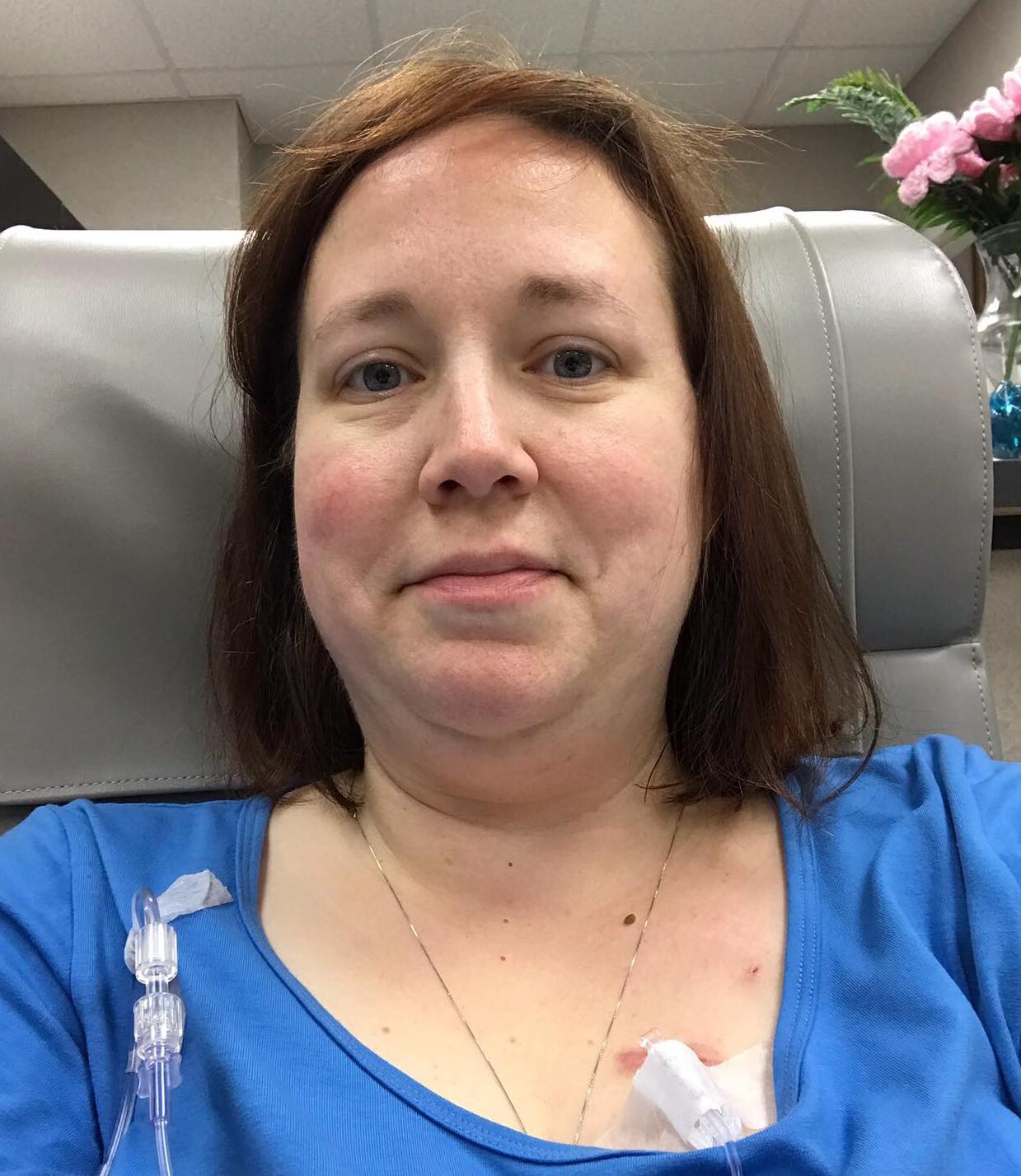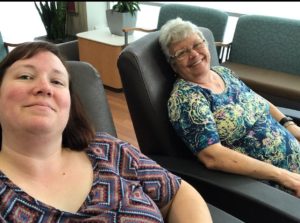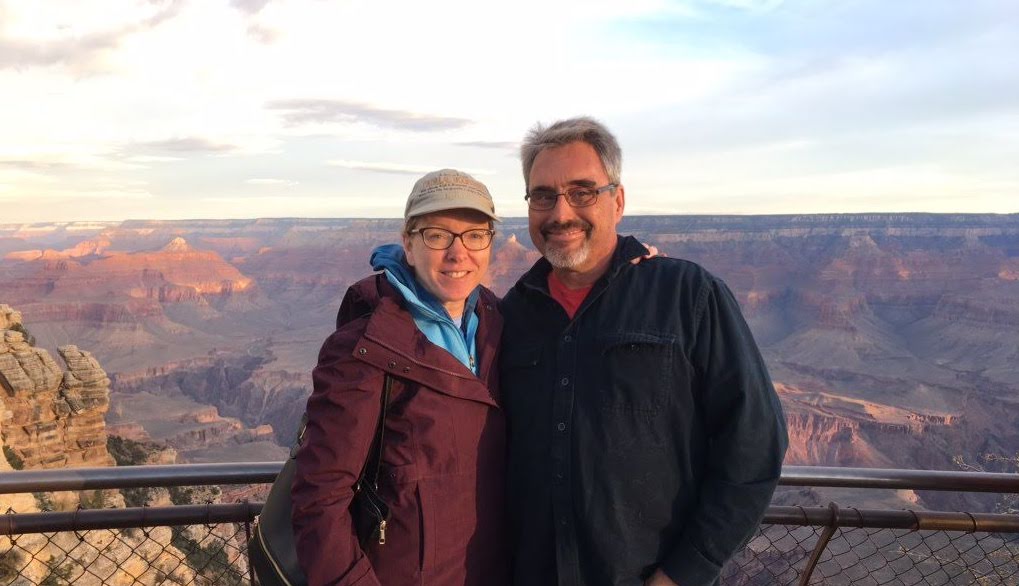
Heather Tucker’s message is simple: “Listen to your body and don’t accept ‘No’ from your doctors. If you know something’s wrong, push until they give you the test that you need to have.”
She’s had experience. In early 2017, Heather noticed her unexplained symptoms weren’t going away and knew she had to do something about it. She was “tired of being tired” and knew that the amount of blood she saw when she went to the restroom was not normal. She mentioned her symptoms and concerns multiple times to various doctors; her primary care physician, gynecologist, and even doctors at walk-in clinics, but she was met with feigned interest or what became the usual diagnosis of hemorrhoids. She became so frustrated she decided to take matters into her own hands.
“I felt relieved when I finally convinced them to give me a colonoscopy. I told my primary care physician, ‘Look, I’m bleeding a lot. I want a colonoscopy.’ She blew me off again, so I finally suggested she at least do some blood work.’” The doctor agreed to do Heather’s blood work, and when it came back that she was severely anemic, the doctor finally agreed to a colonoscopy. “I was frustrated, but I had the  colonoscopy!” But the news wasn’t what Heather was expecting – cancer. Heather’s radiation oncologist informed her that the tumor had been growing for around 8 to 10 years, long before she ever had any noticeable symptoms.
colonoscopy!” But the news wasn’t what Heather was expecting – cancer. Heather’s radiation oncologist informed her that the tumor had been growing for around 8 to 10 years, long before she ever had any noticeable symptoms.
Looking back at Heather’s family tree, her maternal grandmother had ovarian cancer, her maternal grandfather had prostate cancer, but there was no history of colorectal cancer. She recalled that polyps were found when her father went in for his colonoscopy, but none were precancerous.
Heather’s cancer journey has been a rollercoaster. She had a lower anterior resection (LAR) performed to remove the tumor, and a temporary ostomy placed. When she began chemotherapy, she was only able do five rounds because the side effects were so severe. When she went in to get her ostomy reversed, she was diagnosed with lower anterior resection syndrome (LARS), a common condition for many who have had colorectal surgery. Her ostomy site didn’t heal well, and she soon found herself in the emergency room with an infection.
Her amazing support system helped her through the stage II diagnosis. She had the wonderful help of her family and her church community. Heather lives in rural Arkansas, and with the added benefit of her sister and parents living in the same town, she knew she could count on the extra support from everyone.“My mom would watch the kids and my dad would drive me to radiation. Sometimes when I got to their house, instead of just picking up my kids and going home, I would take a nap on the couch, or just rest. They were really supportive about that.”
Even her husband’s job helped out by switch his hours to days so he could take care of the kids whenever Heather was heading to chemotherapy. Their children were 2, 5, and 8 years old at the time, and she and her husband made sure they kept their lives as normal and routine as possible. They were open with the kids about Heather’s diagnosis, but still wanted to assure them that they came first. “They know the word ‘cancer’ and I was really open about my ostomy with them. They seemed pretty unfazed by it, as we worked to keep their lives as normal as possible.”
 It was important for Heather and her husband to keep the kids’ routine going, especially for their son. “My son is special needs, so routine is very important to him. We wanted to make sure his school routine, his therapy routine, and everything remained the same.”
It was important for Heather and her husband to keep the kids’ routine going, especially for their son. “My son is special needs, so routine is very important to him. We wanted to make sure his school routine, his therapy routine, and everything remained the same.”
Heather has extended support in the multiple Facebook groups she’s been a part of. It was in a mom’s group that Heather reached out to another mom diagnosed with colorectal cancer. That connection led her to the Colon Cancer Coalition. Heather has also joined the Blue Hope Nation, COLONTOWN, and multiple online ostomy groups for additional support. Heather cites the fantastic information and people in all her groups who have helped her through her journey.
“I think they’re all priceless. COLONTOWN has different groups. One for people under 40, a women’s group where we can talk about different female issues. Blue Hope Nation posts a lot of research and medical papers, and there’s always people there to help you understand the information. It’s just the comfort of not being alone; you know somebody else in that group has experience, whatever it is they’re going through.”
Heather continually spreads the word about colorectal cancer and being screened. She wears shirts everyday and has bumper stickers on her car for everyone to see. She shares everything on Facebook so others understand the experience of being diagnosed. “I posted a video about the fact that when you have a cold and you take medicine, you get better—you go back to normal—but when you have cancer and you take medicine, it changes you on a cellular level. And I listed a bunch of things that changed for me. Even though I have no evidence of disease (NED) now, I still have all these lingering side effects that I will probably have to deal with for the rest of my life.”
Heather was fortunate that she advocated as hard as she did for herself. She knew someone wasn’t right with her body and didn’t quit until she got answers. And though her cancer was caught in an early stage, she didn’t escaped surgery, treatment, and the many long term repercussions of cancer. Being open about her journey will help others know they are not alone, and will inspire many to pay attention to their bodies and get screened.
RETURN TO FACES OF BLUE LEARN ABOUT YOUNG ADULT COLORECTAL CANCER LEARN MORE ABOUT LARS

